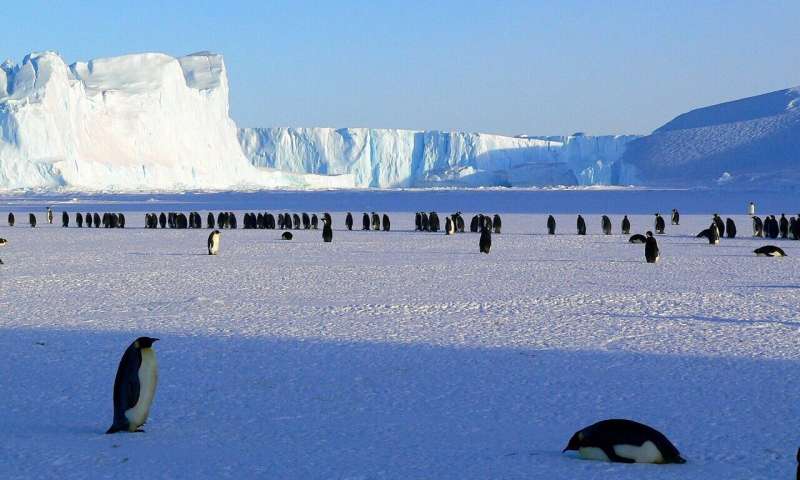July 22, 2020 report
Active leak of sea-bed methane discovered in Antarctica for first time

A team of researchers with Oregon State University has confirmed the first active leak of sea-bed methane in Antarctica. In their paper published in Proceedings of the Royal Society B, the group describes their trip to Cinder Cones located at McMurdo Sound situated in the Ross Sea, and why they believe it signals very serious repercussions for global warming.
Scientists believe that there is a large amount of methane sealed beneath the ocean floor off the coast of Antarctica. It is believed to have developed from algae decaying beneath the seafloor sediment. And it has likely been there for a very long time. As the planet has warmed, scientists have become concerned that the methane could be released if the waters above it were to warm. And if that were to occur, they fear it would release so much methane that there would be no recovering—the planet would warm beyond our means to survive.
The researchers note that the methane leak at the Cinder Cones is not in a part of the ocean that has been warming; thus, the reason for the leak is a mystery. Much more concerning is the reaction of undersea microbes. Prior research has shown that when other parts of the seafloor begin releasing methane, microbes move in and eat it, preventing it from making its way to the surface and into the atmosphere. Cinder Cones has been leaking for at least five years, they note, but as yet, methane-eating microbes have not moved in. Thus, the methane is almost certainly making its way into the atmosphere. The reason this is so concerning, they point out, is because it suggests that if other parts of the seafloor in Antarctica begin to seep methane due to warming, microbes may not move into the area quickly enough to prevent massive amounts of the gas from making its way into the atmosphere. They plan to continue monitoring seepage at Cinder Cones, noting that it could take as long as five more years for microbes to move in. But that research will have to wait, as the pandemic has put their plans on hold.
More information: Andrew R. Thurber et al. Riddles in the cold: Antarctic endemism and microbial succession impact methane cycling in the Southern Ocean, Proceedings of the Royal Society B: Biological Sciences (2020). DOI: 10.1098/rspb.2020.1134
News release by Oregon State University
Journal information: Proceedings of the Royal Society B
© 2020 Science X Network


















